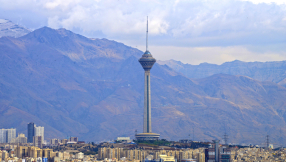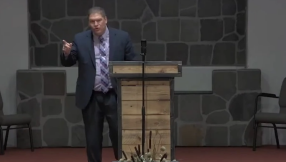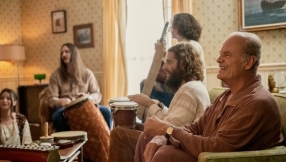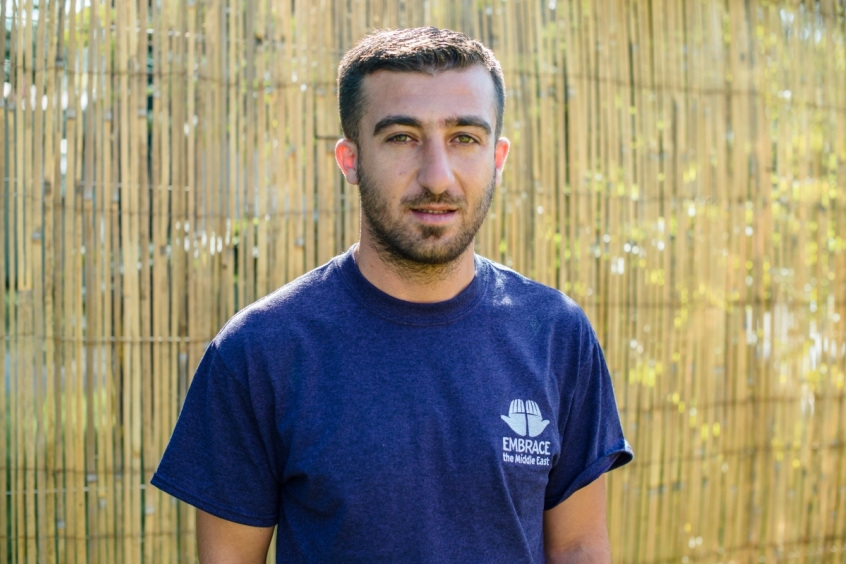
Muhanad Al Qaisy's story is characteristically Palestinian, in that through a set of contradictions it points to the painfully obvious potential of those in the occupied territory.
Aged 28, he is a refugee who lives where he has always lived: with his family in the Deheishah refugee camp in Bethlehem, yet he is a highly articulate graduate of the city's university, with a bachelors degree in social work and psychology.
He comes from a family of what he calls 'simple' farmers – Muhanad's grandfather was forced to leave the West Bank village of Beit Jebrin in 1948 – yet he has already worked as a volunteer social worker in the psychology support unit at the YMCA, providing assistance to children who live near the security zones. During his studies, he was centrally involved in establishing a project helping children from refugee camps to improve their skills in the English language, arts and sports. And now, he works for the UK-based Christian charity Embrace the Middle East.
The campaign that he helps lead is called the Olive Tree Project, established to raise awareness internationally about the current situation in occupied Palestine. It helps local Palestinian farmers to maintain their lands from Israeli confiscation by planting some 11,000 olive trees every year as a form of nonviolent resistance. This work also allows him to travel to different countries around the world, giving lectures about the current situation of refugees and Palestinians living under the occupation.
We caught up over a cup of tea after he had given numerous talks about the Palestinian cause to Christian festival goers at Greenbelt in Northamptonshire last weekend. We started by discussing Muhanad's work for the Olive Tree Project, which was established in 2002.
'The campaign was established in order to replant the olive trees that got uprooted by the Israeli actions in the West Bank. We have about 14 partners around the world – we contact them and work with them to promote the Olive Tree Project for the international community. When they hear about what's happening in Palestine we tell them the story, information on Palestine. They feel that they want to do something – they can sponsor an olive tree and every year we collect about 10, 11,000 olive trees to be planted in Palestine. We do this because through sponsoring olive trees we put people abroad in touch with the land in Palestine. They can track the olive trees that they planted by going to our website and can read the whole story about the farmer and what he is suffering.
'So we ask people to plant an olive tree as help and support for the farmers, because since 1967 to today there are more than 1 million olive trees that have been uprooted. Palestine is a very rich country of olive trees and this is targeted by the Israeli occupation.
'We also take people around the cities in the West Bank, including Hebron, Ramallah, Jerusalem – they meet the farmers. So when they go back to their countries they can talk about what they saw, they can be in touch with other activists in their countries, and that's how they can work together to do something for the Palestinians. Back home a lot of farmers are suffering or facing the occupation by themselves, and what we are trying to do is to replant any trees that get uprooted by the Israelis. The Israelis use a law – if you are not using the land for five years, they have the right to take it from you.
'In the harvest season we also go with farmers to the field to pick the olives because most of the time they are not able to reach near the Israeli settlements, near the barrier. The internationals that join us – about 800 every year – offer security for the farmer on the ground. So far we have planted about 140,000 since 2002. So that's a big income for the Palestinian farmers. Now they can harvest the trees, get oil, sell the olives and make livelihoods.'
Does the project face resistance from Israeli settlers on the ground? 'Yes of course,' says Muhanad. 'Whenever we come near the Israeli settlements, either the soldiers or the settlers come down to the field where we are working and try to attack us or stop us. But they can't stop us because we have internationals with us – they offer security for us while we are working in the field. And that is the purpose of bringing the internationals – to see the suffering of the farmers and to offer security while working in the field.'
Some of the work takes place near the controversial 'security barrier' or 'wall' built by the Israelis and increasingly cutting through the West Bank, and around Bethlehem. Muhanad echoes a popular Palestinian view about the motives behind it.
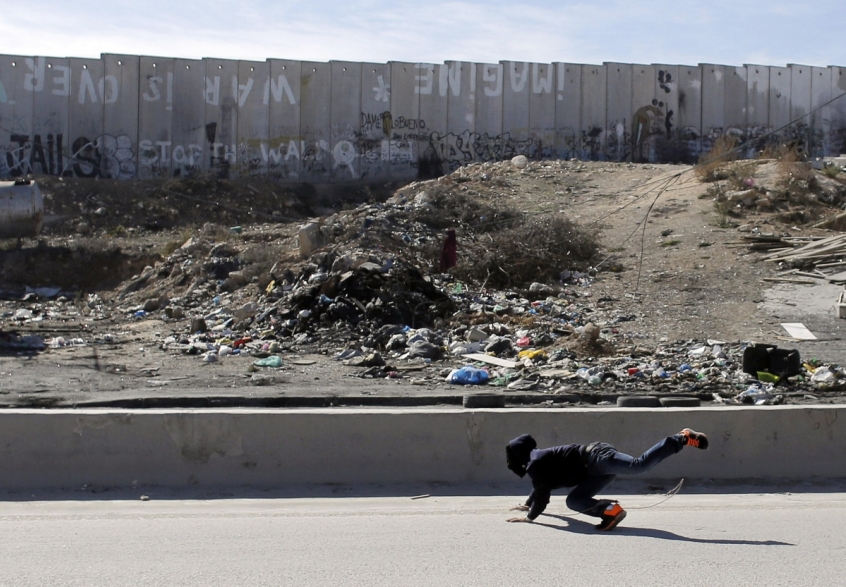
'The wall, we believe was not build for security reasons – it was only built to grab and to take more and more land from Bethlehem, to add it to Israel. Around the city of Bethlehem there are around 24 Israeli settlements. We as Palestinians have access to only around 25 per cent of the city. The wall is around 720km, while the border between Israel and Palestine – the green line – is around 320km, which means the wall keeps sneaking in the West Bank to take more and more land. The wall has separated a lot of families from each other. It makes our life much harder because whenever we want to move froma place to another we face the wall. So it has affected our life in a big way.'
Indeed, some of those it has affected are Christians, said to be increasingly leaving the birthplace of their faith. Muhanad is himself Muslim, but he sympathises with the plight of his Christian 'brothers'.
'Some of the places which were Christians owned land were targeted by the Israelis – such as the town of Beit Jala – and there is a lot of land lost in that area and it is related to Christian families. If we are talking about the northern entrance of the city of Bethlehem, a lot of shops, places, houses were shut down because of the wall and all of this related to the Christian.'
Some argue that Christians are targeted by Muslim hardliners in and around Bethlehem, and this is why they are leaving. But Muhanad – like many others – places the blame on the Israeli occupation.
'Actually it is very hard for Christians to resist and stay while you are facing all this. It is resistance for the Christians to stay in the Holy Land and face the occupation. Of course in Bethlehem – Muslims and Christians -- we deal with each other as brothers and sisters, as one big family. Every day we work together and we face this occupation together and the occupation doesn't differentiate if you are a Christian or a Muslim – we are all the same.
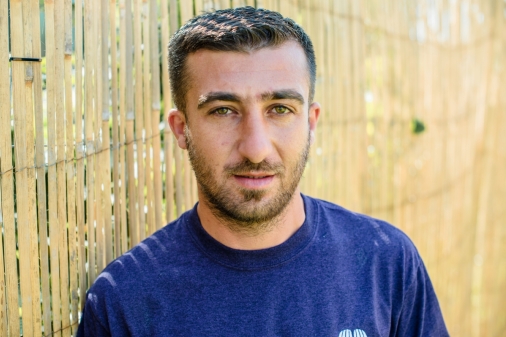
Asked whether it is true that Palestinians are leaving Bethlehem, Muhanad says: 'Yes. A lot of young people – if they had the opportunity to leave, they would leave, because no-one would accept what is happening in Palestine. During the second intifada [September 2000 – February 2005] there was a very dangerous situation, and there still is, and many people are not able to deal with this hard situation and unfortunately yes, a lot of Palestinians leave, and that is what the occupation wants. They want to take the water, the electricity, stop you travelling, stop you moving, building your house, demolish the house, take your rights from you, and the main goal for this is to force the people to leave – either to leave the area they are targeting or to leave the whole country. And I think they are very happy when we decide to leave the country.'
Finally, we turn inevitably to 'the situation': the bigger picture of the politics. Like most Palestinians, Muhanad is pessimistic about the possibilities of an elusive peace between Israel and the Palestinians.
'Politically I don't see any hope because every couple of months the Israelis build new settlements in the West Bank and I don't see any peace initiative coming from the Israelis. As Palestinians, we have already given away everything we have – we have nothing left that we can give. We gave the land, we admitted the Israeli state, they are a lot of people in jail, there is no water, no airport, no seaport – there is nothing left for us to give.
On Donald Trump, Muhanad looks incredulous at the admittedly unlikely suggestion that a new US president could bring 'fresh' energy to the region. 'Fresh!' he exclaims. 'Whenever there is anew president they say he will be better than the last – we were hoping for Barack Obama to do something: we got nothing. So I think it is the American policy, regardless who is the president. If they really have the desire – Israel also has to have the desire to make it real. They just want to build more and more settlements.'
Concluding, he does appear to acknowledge that ordinary Israelis as well as Palestinians want and deserve peace, even if their leaders lack the political will.
'I believe that the solution should be political: change the policies internationally so the big countries look at Palestine and Israel and work for a just peace for both of the peoples.'











